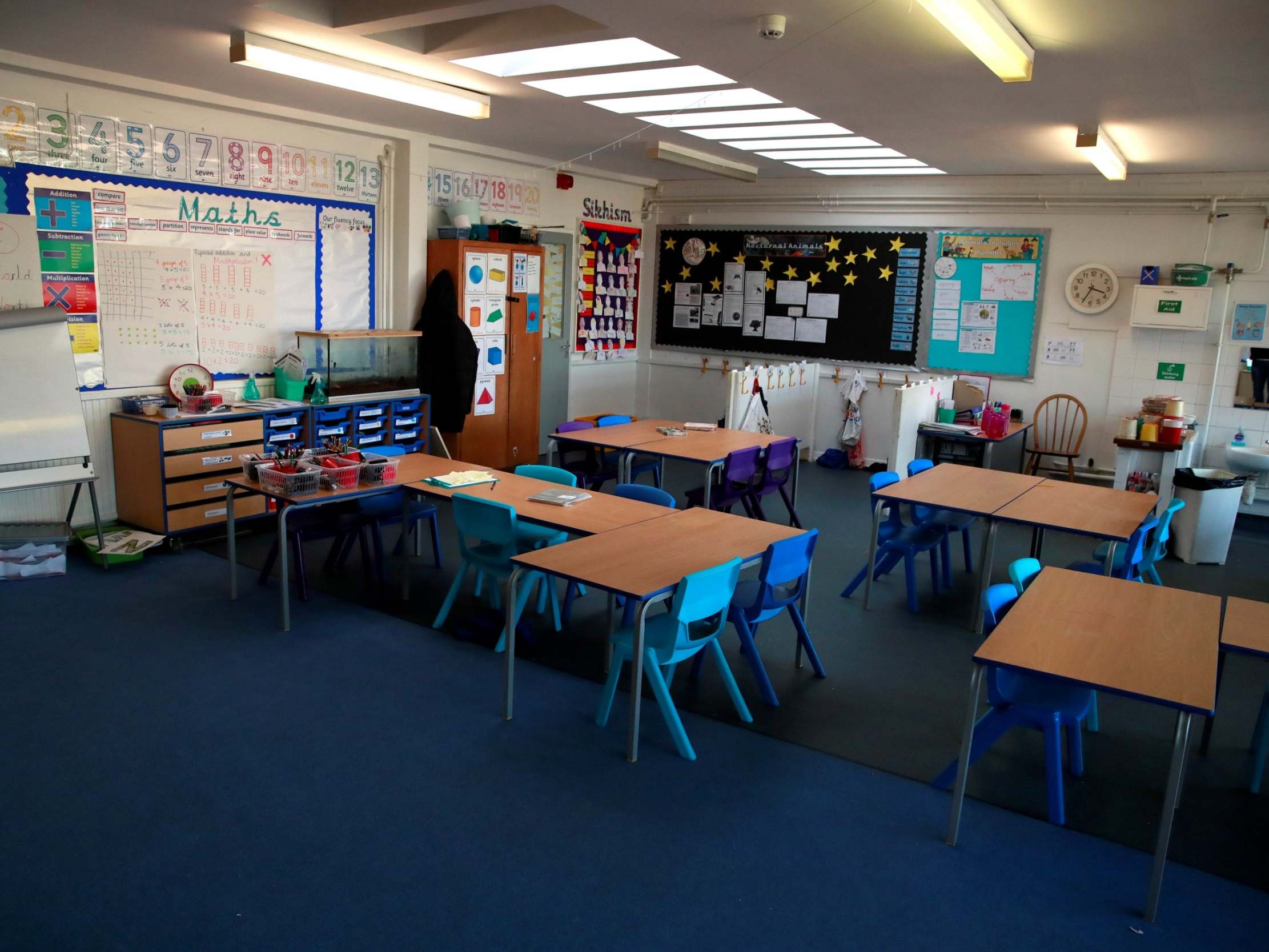UK lockdown will be relaxed for certain age groups and areas first, scientist advising government says
Professor Neil Ferguson of Imperial College London says ‘measures will be targeted probably by age, by geography’
Your support helps us to tell the story
From reproductive rights to climate change to Big Tech, The Independent is on the ground when the story is developing. Whether it's investigating the financials of Elon Musk's pro-Trump PAC or producing our latest documentary, 'The A Word', which shines a light on the American women fighting for reproductive rights, we know how important it is to parse out the facts from the messaging.
At such a critical moment in US history, we need reporters on the ground. Your donation allows us to keep sending journalists to speak to both sides of the story.
The Independent is trusted by Americans across the entire political spectrum. And unlike many other quality news outlets, we choose not to lock Americans out of our reporting and analysis with paywalls. We believe quality journalism should be available to everyone, paid for by those who can afford it.
Your support makes all the difference.The UK’s coronavirus lockdown restrictions will likely be lifted for certain age groups and areas of the country first, one of the top scientists advising the government has said.
Speaking on Friday morning Professor Neil Ferguson of Imperial College London said that “measures will be targeted probably by age, by geography”.
It comes after a new report from behavioural scientists at Warwick University which said that about four million people between the ages of 20 and 30 should have restrictions lifted as the first stage of easing the lockdown.
“I think there are lots of ideas worth exploring. That’s what is happening right now,” Professor Ferguson told BBC Radio 4’s Today programme.
“We clearly don’t want these measures to continue any longer than is absolutely necessary. The economic cost, social cost, personal and health costs are huge. But we do want to find a set of policies which maintains suppression of transmission of this virus.
“Without doubt, measures will be targeted probably by age, by geography and we will need to introduce in my view – this is not government policy – much larger levels of testing at the community level to really isolate cases more effectively and identify transmissions. “
The scientist, who is a member of the government’s Sage advisory committee, added: “Both in the scientific community … and in government itself it’s the number one topic and priority every waking minute as it were.”
Geographically, London is thought to be the epicentre of the outbreak in the UK.
Professor Paul Cosford, emeritus medical director for Public Health England (PHE), suggested that schools could be one of the first places to reopen. There is academic debate about whether closing schools is necessary, as children’s lower susceptibility to the virus may mean they are also less contagious.
“We do know that children are at very low risk of getting complications from this disease. The importance of children’s education, children being in school, is paramount,” Professor Cosford said.

“I could conceive of circumstances in which some of the restrictions are lifted sooner and some are lifted later.”
Andrew Oswald, professor of economics and behavioural science at the University of Warwick, was one of the authors of the report suggesting young people should have their restrictions lifted first.
“The rationale for lockdown is to save lives in the short to medium term,” he said.
“However, severe damage is being done to the economy, future incomes, unemployment rates, levels of national debt, and the freedoms we enjoy as a modern society. Before long, some balance will have to be struck.”
Like children, younger people are less susceptible to developing severe symptoms when they catch the virus – though the researchers estimated that their proposed strategy would result in between 600 and 700 extra deaths. There are currently around 900 officially reported deaths a day in hospitals in the UK.
Nick Powdthavee, professor of behavioural economics at Warwick Business School, said: “We support the existing lockdown strategy, but in the future it will be necessary to allow citizens to go back to some kind of normal life.
“Unless a vaccine is suddenly discovered there are no risk-free or painless ways forward.
“If this policy were enacted, there would still be tragic cases and some pressure on the NHS, but the effects would be far smaller than if the wider population were released.”
Asked about the comments that the lockdown could be relaxed by age and geographical area, a Downing Street spokesperson said: “He [Professor Ferguson] is a member of Sage as you know. I don’t have anything to share with you at this point in time. We will set out the details at what we consider to be the right moment.”

Join our commenting forum
Join thought-provoking conversations, follow other Independent readers and see their replies
Comments